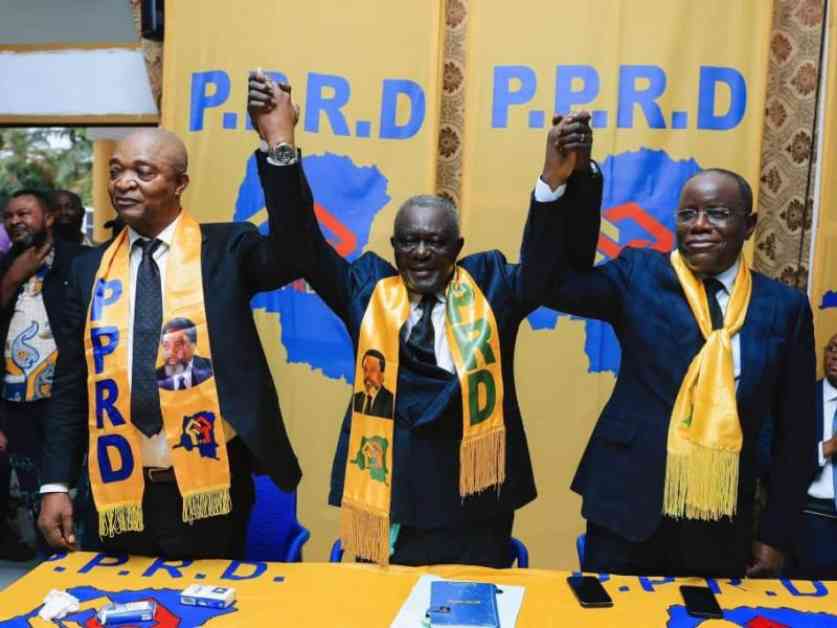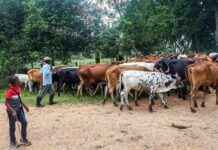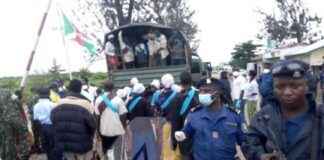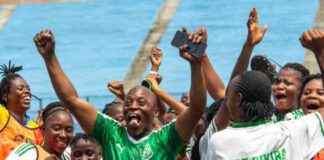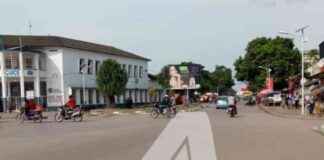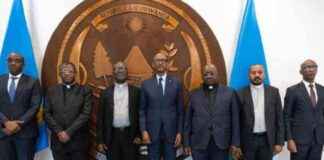In a recent turn of events in the political landscape, high-ranking members of the Political Party for Democracy (PPRD), Aubin Minaku and Ramazani Shadary, have been summoned by the military justice to shed light on certain matters. These individuals, close associates of former President Joseph Kabila, have been prohibited from leaving the country. This directive was issued by Constant MUTAMBA, the Minister of State for Justice and Keeper of the Seals, citing suspicions of complicity with the M23/AFC rebels.
The order also includes the interrogation of other senior PPRD members suspected of involvement with the terrorist movement AFC/M23. As a result, all those who have been called in for questioning are formally barred from exiting the national territory until further notice. The recent development stems from the meeting last weekend between the PPRD’s Secretary-General, Emmanuel Ramazani Shadary, and the Ministry of Interior and Security to address the party’s recent communication following Joseph Kabila’s public statement in Namibia.
During a gathering in Kinshasa, the PPRD’s Vice-President, Aubin Minaku, emphasized the need for readiness in light of the leader’s instructions. “The Chief has spoken, we must be prepared for anything. When the Chief says we must be ready for anything, each of us, a true PPRD member, understands. When the Chief says: no more silence, no more covert actions, now is the time for open actions. I take responsibility, that says it all,” Minaku stated.
Expert Insights into the Political Implications
Political analysts have weighed in on the significance of these developments within the PPRD. According to Dr. Jane Smith, a renowned political scientist, the actions taken by the government to restrict the movement of key party members indicate a potential crackdown on dissent and internal discord. “In many authoritarian regimes, such measures are often employed to maintain control and quash any opposition from within the ruling party itself,” Dr. Smith explained.
Furthermore, Dr. Michael Johnson, a specialist in African politics, highlighted the delicate balance of power at play in the DRC’s political landscape. “The interplay between former allies turned adversaries in the aftermath of a regime change can lead to heightened tensions and power struggles, as seen in this situation with the PPRD members,” Dr. Johnson commented.
Impact on Civil Liberties and Democratic Principles
The restriction imposed on Minaku and Shadary raises concerns about the protection of civil liberties and democratic values in the DRC. Human rights organizations have expressed apprehension about the potential erosion of individual freedoms and the right to due process. Sarah Ndala, a human rights advocate, emphasized the importance of upholding the rule of law even in cases involving high-profile figures. “Regardless of one’s political affiliation or status, everyone is entitled to a fair and transparent legal process. Any deviation from this principle undermines the foundations of a democratic society,” Ndala affirmed.
In light of these developments, the broader implications for political dissent and freedom of expression in the DRC remain a point of contention. As the situation continues to unfold, the eyes of the international community are closely watching the trajectory of democracy and governance in the region.
Stay tuned for further updates on this evolving story as more details emerge and the implications of these actions reverberate throughout the political landscape of the Democratic Republic of Congo.
